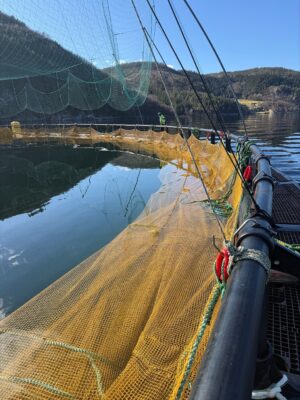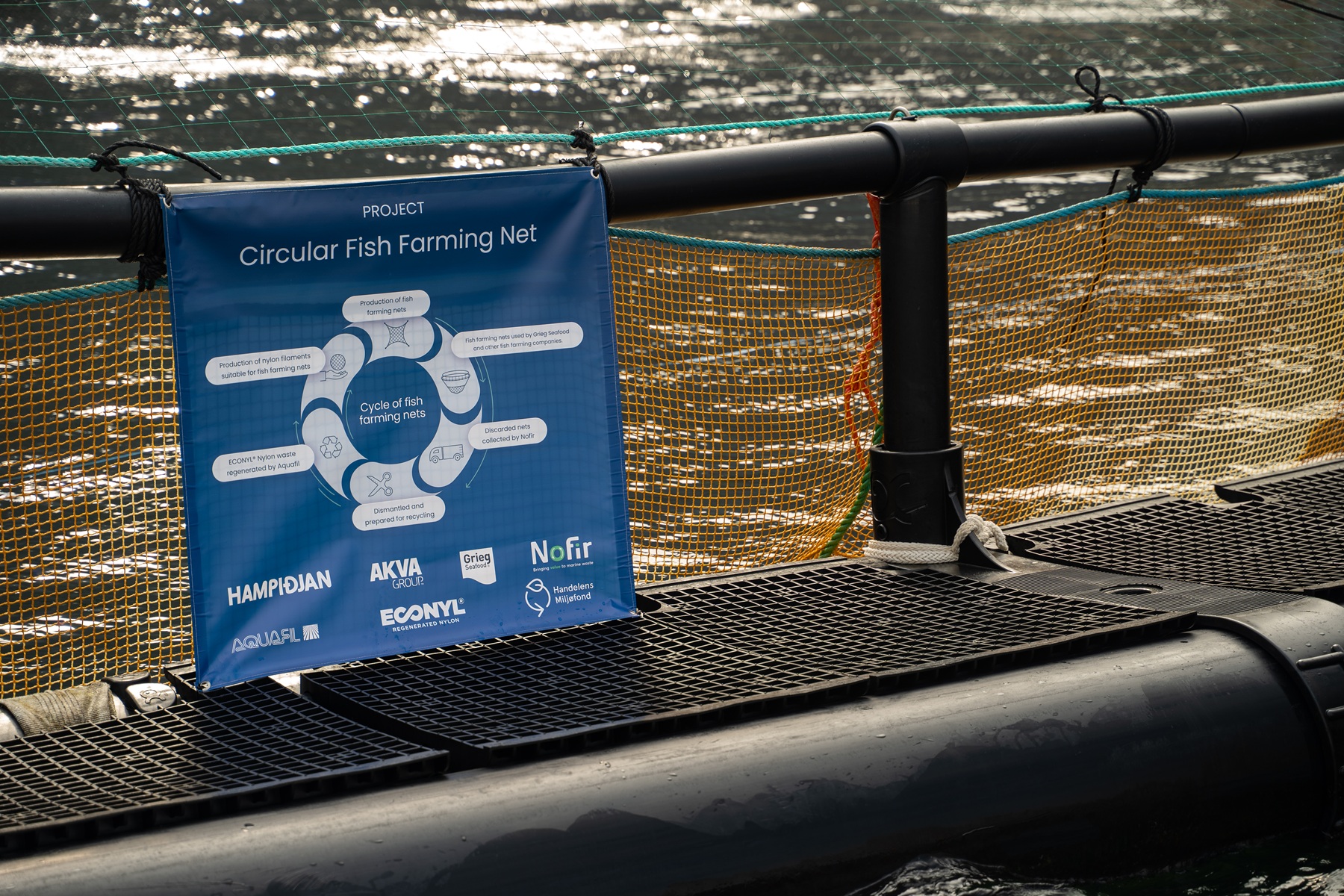Recently, two full-size fish farming cages made entirely from recycled nylon were put into use by the Norwegian aquaculture company Grieg Seafood. Until now, it has not been possible to recycle nylon from nets without compromising quality. The fish farming nets are the product of the innovation project Circular Fish Farming Nets (CFFN), which was developed in collaboration between Hampidjan Group, Nofir, AKVA Group, Aquafil, and Grieg Seafood. The project has demonstrated that recycled material can be used to make new products without sacrificing quality, thereby reducing waste and protecting the environment.

Fish farming tub made from recycled nylon at the Norwegian aquaculture company Grieg Seafood.
The project, supported by the Norwegian Retailer’s Environment Fund (Handelens Miljøfond), is a good example of the potential of the circular economy in aquaculture and the seafood industry—especially since there is a high likelihood that it can be scaled up within the sector to increase the use of recycled plastics.
Nylon plays a wide and important role in modern fisheries, particularly in the production of trawl nets, seines, and fish farming cages. The recycled material used in the CFFN project comes from decommissioned fish farming cages provided by Hampidjan’s customers. It consists of nets that have reached the end of their service life and are then processed into high-quality ECONYL® yarn by the yarn manufacturer Aquafil.
Hampidjan has for many years sent nylon for recycling, but until now, the resuling product has been unsuitable for the production of new yarn due to contamination and insufficient strength compared to virgin nylon. “Demonstrating the possibilities of an effective circular value chain, where nylon is chemically recycled, sends a powerful message to the industry that such recycling is a viable option. It reduces greenhouse gas emissions of new products and prevents material from ending up in landfills or being incinerated,” says Georg Haney, Environmental Manager at Hampidjan hf.
Hampidjan’s subsidiaries—Hampidjan Baltic, Mørenot Baltic, Vonin Lithuania, and Vonin Refa—all contributed to making circular nylon nets a reality, drawing on their deep expertise in the production and assembly of aquaculture equipment and fishing gear.
Hampidjan Group is working closely with its customers and partners to find ways to recycle its products used in aquaculture and fisheries. In addition to nylon, all PE and PP materials, along with rubber and metal components, are sent for recycling. The group’s companies actively participate in projects and collaborations to find effective solutions or alternatives for the few remaining materials in its product lineup.


